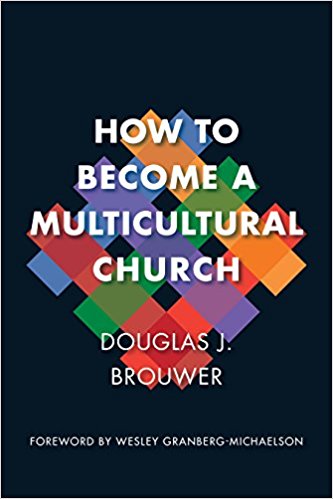Book review: How to become a multicultural church
 ChatGPT
ChatGPT The other week I was in a study group at my church that was talking through chapter 10 of the book by J.D. Greear’s Gaining by Losing. The chapter we were on was “Racial Reconciliation as a Fruit of the Sending Culture.” The leader opened the discussion on what the congregation could be doing differently to incorporate a more multicultural approach to ministry—and pretty much was met with a deafening silence from the group.
The other week I was in a study group at my church that was talking through chapter 10 of the book by J.D. Greear’s Gaining by Losing. The chapter we were on was “Racial Reconciliation as a Fruit of the Sending Culture.” The leader opened the discussion on what the congregation could be doing differently to incorporate a more multicultural approach to ministry—and pretty much was met with a deafening silence from the group.
It might have been expected from this mostly white, farming community in south-central Pennsylvania. Even if we had been serious about becoming a multicultural church, the possibility of doing so would have been a multi-year, multi-frustrating process.
There is a difference in moving a church more fully into a multicultural membership and ministry, as compared to, say, advancing an already racially and culturally integrated congregation. Douglas J. Brouwer, pastor of the International Protestant Church in Zürich, Switzerland, would likely say so, and says as much in his new book How to Become a Multicultural Church [Eerdmans, 2017].
The title is a trifle misleading if you think the book offers up 10 chapters on how to turn your dominant white church into a sea of different cultures and colors. But if you want the reflections of what an American pastor might find in being transplanted to a European community, this book of 177 pages is a delightful journey of relearning and re-education from a dominant culture to a mixture of cultures in a European context.
As the book’s back cover says it: Brouwer “took on the unique challenge of serving a multiethnic, multiracial, multicultural church in one of Europe’s largest cities. Brouwer distills the lessons he has learned from their experience, offering timely wisdom on such issues as language barriers, theological differences, and cultural stereotypes.”
The point of the book, offered in a timely and easy reading, is “how churches everywhere can adjust their attitudes and practices to embrace different kinds of diversity and worship together as God’s people.” Aside from his congregation, Brouwer sprinkles examples of other multicultural churches throughout the book. He also speaks to the renewal of worship and music styles, as in this observation: “Multicultural worship mines the riches of Scripture and leads worshipers to deeper encounters with Christ and the gospel message.”
He closes the book on the theme, of all things, potlucks, that becomes a metaphor for fellowship, hospitality, and “where strangers become friends.” He writes:
“My argument is not that we should aim for multicultural churches in order to have interesting potlucks, although that idea may have some merit. I think potlucks teach us another lesson.
“I should not be surprised about how important church potlucks are—or the large crowds they typically draw—because it has always been around a table that the body of Christ has become visible. It is in the breaking of bread, we typically say, that we recognize the risen Christ present among us. Sometimes we even say that at table we are able to catch a glimpse of the heavenly banquet—or as a favorite old hymn puts it, a ‘foretaste of glory divine.’”
More on Book Reviews
- Book review: Building a Storybrand (by Richard Blackaby)
- Book review: He Leadeth Me (by Richard Blackaby)
- Book review: Rare Leadership: 4 Uncommon Habits for Increasing Trust, Joy, and Engagement in the People You Lead (by Richard Blackaby)
- Book review: Shaping History Through Prayer and Fasting, by Derek Prince (by Richard Blackaby)


